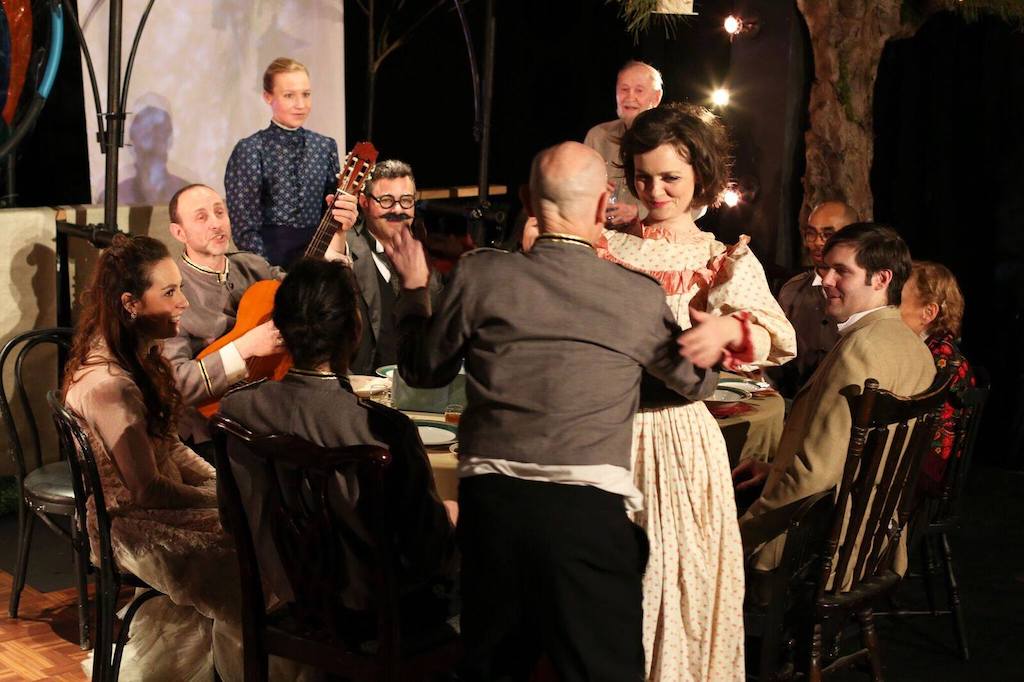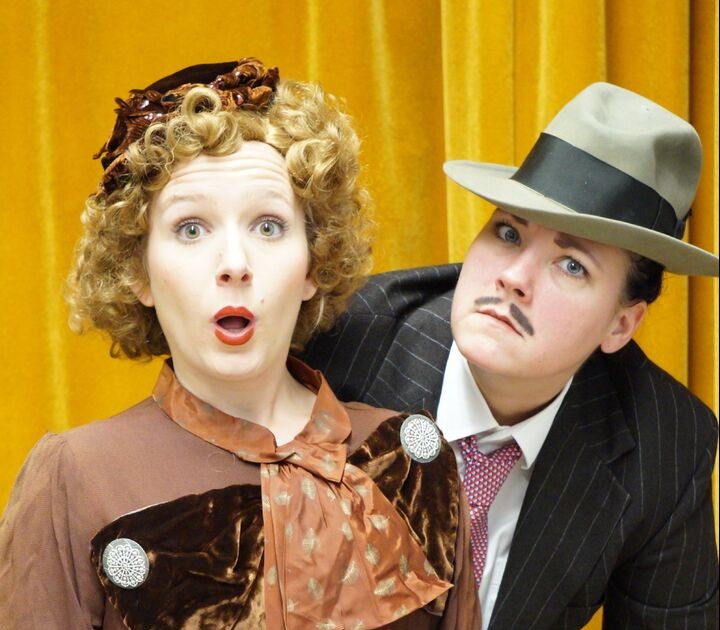Review by JK Clarke
The love triangle is a convoluted social situation that has no doubt existed since the dawn of civilization; and it is a plot device that has attracted writers and storytellers from the very beginning. It offers the audience intrigue, internal conflict, empathy and angst, hence it has appeared at the heart of some of the great literary works of every era. So, naturally, with the blossoming of major literary movements of the mid-19th century— hallmarked by such great realist writers as Balzac and Flaubert in France; and Tolstoy and Dostoevsky in Russia—the subject is prominent in the era. One of the most notable and influential scribes (though not as well known today) to emerge from this period was Ivan Turgenev, a Russian who chose to reside in France, where he befriended and was heavily influenced by prominent novelists like Flaubert. It was there, in the 1850s, that he wrote the intriguing and entertaining play, A Month in the Country, now being presented by Classic Stage Company (CSC).
Deftly directed by Erica Schmidt, A Month in the Country, is a delightful sendup of the relatively meaningless problems of a permissive noble class: At the country estate of wealthy landowner Arkady Islaev (a charming Anthony Edwards), his young wife Natalya (Taylor Schiling) basks in the attentions of Arkady’s dear friend, Mikhail Rakitin (Peter Dinklage), until becoming aware of a striking young man, her son’s tutor Aleksey Belyaev (Mike Faist), who is several years her junior. And, of course, Natlaya’s young ward Vera (Megan West) has fallen for Aleksey as well. As seems to have been the case in this period and with that class, these various attentions and interests, despite Natalya’s marital status, were rather overtly displayed and more or less dismissed (by her husband and their social circle), resulting in the love triangle (or rather trapezoid, in this instance) playing out tragi-comically in front of all.
Turgenev’s beautifully written, well-paced story is as elegantly presented as one could hope. As a result of Tom Broecker’s whirlwind of sumptuous mid-century period costumes (Schilling alone wears a different, exquisite, ball-worthy gown in almost every scene), to Mark Wendlend’s gorgeous, yet simple country-house set (with an photographed Aspen grove background that changes depth and perspective thanks to Jeff Croiter’s sharp and sophisticated lighting), we are able to jump right into the story and setting. But it is the ensemble’s terrific acting that really cements the play. Dinklage and Schilling rise above the star currency they bring with dynamic and intense chemistry. Schilling, making her New York stage debut, is expressive and enigmatic, subtly hinting at her inner thoughts while not over-selling. And Dinklage is magnificent. His character is both protagonist and narrator who speaks volumes with the twitch of an eyebrow. We feel deeply for him when we realize, as he does simultaneously, that Natalya might not be interested after all: “. . . You play me like a cat with a mouse, but the mouse does not complain.” he whines to her, but also us, standing at a railing on the stage that almost makes it feel like the audience is a jury listening to a solicitor make his case. And when seeing she has eyes for another, he pleads, openly again: “What does it mean? The beginning of the end, or the end? . . . Or the beginning?” LIke a typical jilted lover, he holds out hope. Unreasonable hope, pathetic hope, but hope nonetheless.
In true classic theater fashion other subplots play out, mostly for comic relief. Quietly working out a deal to obtain three horses, the local inept doctor, Shpigelsky (cleverly played by Thomas Jay Ryan), attempts to arrange a marriage between the wealthy and slovenly, yet kind, Bolshintsov (Peter Appel) and 17-year-old Vera, who is unwilling at first, but settles for comfort and security once her true love rejects her, thus setting in motion the same cycle of infidelity and longing. The lesson is clear: the leisure class is continually arranging its own grief by repeatedly choosing business over passion.
The young (approximately nine years old) actor, Ian Etheridge, who plays Kolya (Natalya’s son) deserves special notice. He quite refreshingly lacks the self-consciousness that befalls most actors his age and is very much at home on the boards, despite somewhat extensive stage time. What’s more his role and acting skill adds dimension and nuance to the play. It’s exciting to think what the future might hold for him.
This production of A Month in the Country is theater at its finest. A good, solid story with an appealing, while not excessively serious conflict, that is certainly lighthearted in spots which ends on a satisfyingly bittersweet note. Coupled with such flawless production values it makes for an extremely entertaining evening of sophisticated theater. What’s more, since Dinklage is drawing fans of HBO’s smash hit “Game of Thrones” and Schilling brings adherents of Netflix’s hugely popular “Orange is the New Black,” the play is likely introducing many new, young fans—some of whom might never have gone to see a live production otherwise— to great theater. Who knows? It could even make regulars of some of them.
A Month in the Country – Through February 22 at Classic Stage Company (136 E. 13th Street, between Third and Fourth Avenues). www.classicstage.org

























